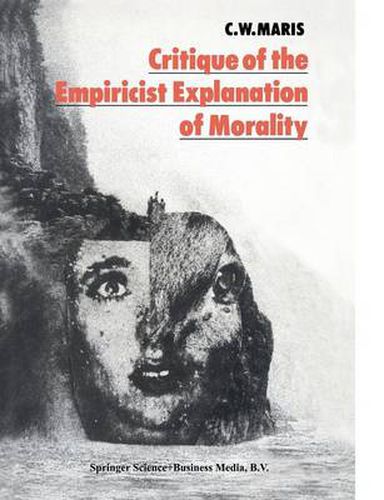Readings Newsletter
Become a Readings Member to make your shopping experience even easier.
Sign in or sign up for free!
You’re not far away from qualifying for FREE standard shipping within Australia
You’ve qualified for FREE standard shipping within Australia
The cart is loading…






This title is printed to order. This book may have been self-published. If so, we cannot guarantee the quality of the content. In the main most books will have gone through the editing process however some may not. We therefore suggest that you be aware of this before ordering this book. If in doubt check either the author or publisher’s details as we are unable to accept any returns unless they are faulty. Please contact us if you have any questions.
a. ‘Two things fill the mind with ever new and increasing admiration and awe, the oftener and the more steadily we reflect on them: the starry heavens above and the moral law within. ’ Thus Kant formulates his attitude to morality (Critique of Practical Reason, p. 260). He draws a sharp distinction between these two objects of admiration. The starry sky, he writes, represents my relationship to the natural, empirical world. Moral law, on the other hand, is of a completely different order. It ‘ … begins from my invisible self, my personality, and exhibits me in a world which has true infinity, but which is traceable only by the understanding and with which I discern that I am not in a merely contingent but in a universal and necessary connection (… ). ’ (p. 260). So Kant sees morality as a separate metaphysical order opposed to the world of empirical phenomena. Human beings belong to both worlds. According to Kant, the personality derives nothing of value from its relationship with the empirical world. His part in the sensuous world of nature places man on a level with any animal which before long must give back to the rest of nature the substances of which it is made.
$9.00 standard shipping within Australia
FREE standard shipping within Australia for orders over $100.00
Express & International shipping calculated at checkout
This title is printed to order. This book may have been self-published. If so, we cannot guarantee the quality of the content. In the main most books will have gone through the editing process however some may not. We therefore suggest that you be aware of this before ordering this book. If in doubt check either the author or publisher’s details as we are unable to accept any returns unless they are faulty. Please contact us if you have any questions.
a. ‘Two things fill the mind with ever new and increasing admiration and awe, the oftener and the more steadily we reflect on them: the starry heavens above and the moral law within. ’ Thus Kant formulates his attitude to morality (Critique of Practical Reason, p. 260). He draws a sharp distinction between these two objects of admiration. The starry sky, he writes, represents my relationship to the natural, empirical world. Moral law, on the other hand, is of a completely different order. It ‘ … begins from my invisible self, my personality, and exhibits me in a world which has true infinity, but which is traceable only by the understanding and with which I discern that I am not in a merely contingent but in a universal and necessary connection (… ). ’ (p. 260). So Kant sees morality as a separate metaphysical order opposed to the world of empirical phenomena. Human beings belong to both worlds. According to Kant, the personality derives nothing of value from its relationship with the empirical world. His part in the sensuous world of nature places man on a level with any animal which before long must give back to the rest of nature the substances of which it is made.